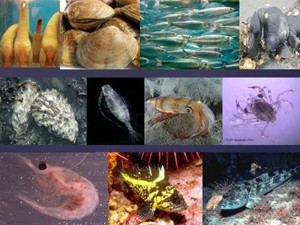
COURTESY OF THE NOAA OCEAN ACIDIFICATION PROGRAM
The damage caused by increasing ocean acidification is predicted to be widespread in marine ecosystems.
WOODS HOLE – The National Oceanic and Atmospheric Administration has awarded more than $1.3 million to three universities to research the effects of ocean acidification on marine species and coastal habitats.
Ocean acidification, which is the increase in seawater acidity caused by an increase of carbon dioxide in the atmosphere, could fundamentally change the ocean, its habitats, food webs and marine life.
It can affect species such as oysters, clams, mussels and crabs directly.
The funding will support three projects in California, Texas and Maryland.
UCLA will lead a $420,000 project to predict what areas of the California Current will be particularly vulnerable to low oxygen and ocean acidification.
Texas A&M at Corpus Christi will receive over $480,000 to understand how changes of water flow may cause short term acidification in Texas estuaries.
And the University of Maryland will be at the helm of a $435,000 project to determine acidification conditions in Chesapeake Bay and how they relate to ongoing oyster restoration efforts.
The research from these projects will tell scientists how the chemistry of the coastal ocean is changing, where the changes will be most acute and the affects it will have on marine animals and their habitats.























Speak Your Mind